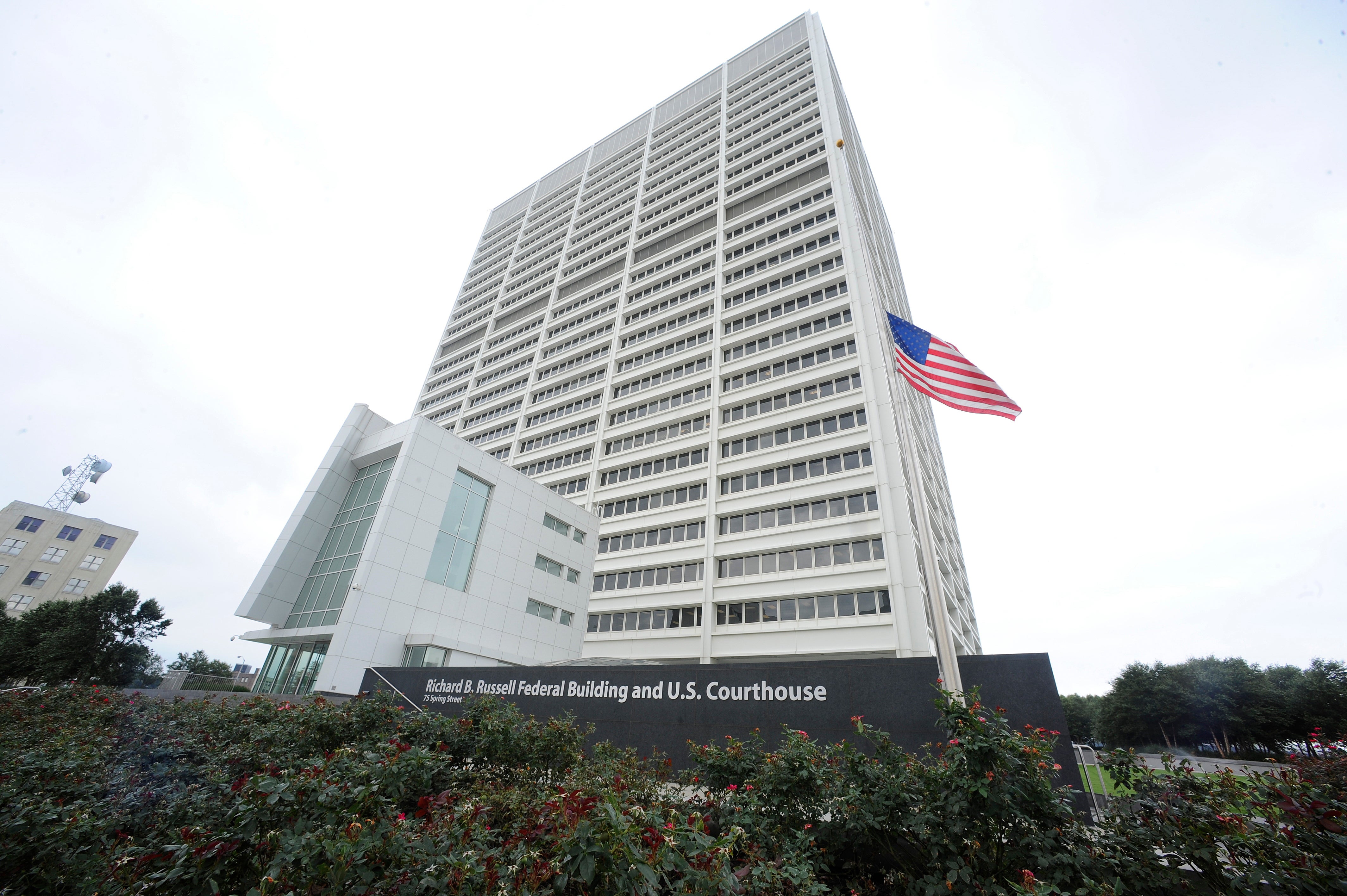Judge temporarily blocks Georgia law that limits people or groups to posting 3 bonds a year
A federal judge has temporarily blocked a Georgia law that restricts organizations that help people pay bail so they can be released while their criminal cases are pending

A federal judge on Friday temporarily blocked part of a Georgia law that restricts organizations from helping people pay bail so they can be released while their criminal cases are pending.
U.S. District Judge Victoria Marie Calvert blocked part of Senate Bill 63 from taking effect on Monday after a hearing in Atlanta. The judge is stalling the law for 14 days and directing lawyers to present arguments on whether it should be stayed until a lawsuit over the measure is resolved.
The blocked section limits people and organizations from posting more than three cash bonds in a year unless they meet requirements for bail bond companies. That means passing background checks, paying fees, holding a business license, securing the local sheriff’s approval and establishing a cash escrow account or other form of collateral.
Calvert is letting other parts of the law that require cash bail before people charged with 30 additional crimes can be released from pretrial detention. That list includes 18 offenses that are always or often misdemeanors, including failure to appear in court for a traffic citation.
The American Civil Liberties Union of Georgia and the Institute for Constitutional Advocacy and Protection at Georgetown University Law Center filed the lawsuit on June 21. They represent Barred Business Foundation, an Atlanta-based nonprofit whose activities include facilitating campaigns to pay cash bail, as well as two people who live in Athens and run a charitable bail fund in association with their church.
The lawsuit argues that restrictions on bail funds are unconstitutional and asks the judge to prevent its enforcement.
It says the law “imposes what are arguably the most severe restrictions on charitable bail funds in the nation,” while the imposition of those restrictions on charitable bail funds is “incredibly burdensome — perhaps insurmountable — and is both irrational and arbitrary.” The complaint asserts that if the statute is allowed to take effect, “these restrictions will effectively eliminate charitable bail funds in Georgia.”
Earlier this month the Bail Project, a national nonprofit that helps thousands of low-income people post bond, announced that it had closed its Atlanta branch because of the law.
“We are encouraged by the judge’s ruling and its recognition that this law is unnecessary, harmful, and likely unconstitutional,” Cory Isaacson, ACLU of Georgia legal director, said in a statement, “We are relieved for our plaintiffs and the many people across the state that they serve. It’s unconscionable that people doing charitable bail work would face criminal penalties simply because they are helping people who are languishing in jail because of their poverty and have no other means of relief.”
A spokesperson for Attorney General Chris Carr did not immediately respond to a text message seeking comment late Friday. The state argued in a brief filed Thursday that the law does not violate the plaintiffs' rights of free speech and association because it only would regulate non-expressive conduct. The state says the challengers can still criticize Georgia's cash bail system and paying bail does not inherently convey any message.
Supporters of the measure say well-meaning organizations should have no issue with following the same rules as bail bond companies. The measure comes amid conservative efforts to restrict community bail funds, which were used to post bond for people involved in 2020 protests against racial injustice and, more recently, to protesters opposed to a public safety training center being built near Atlanta.
State prosecutors have noted that some “Stop Cop City” protesters had the Atlanta Solidarity Fund’s phone number written on their bodies, which they allege was evidence thry intended to do something that could get them arrested. Three of the bail fund’s leaders were charged with charity fraud last year and are among 61 indicted on racketeering charges.